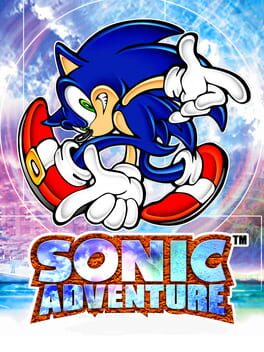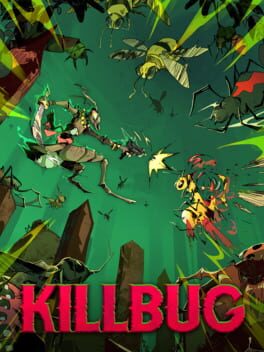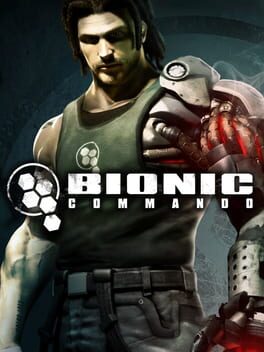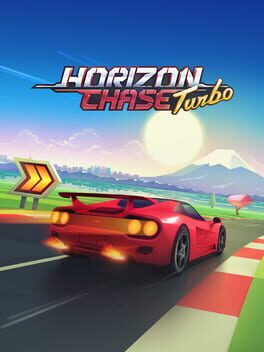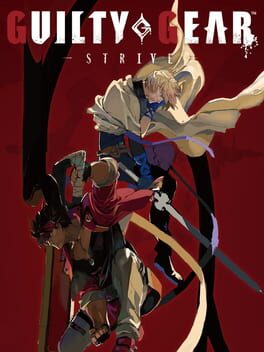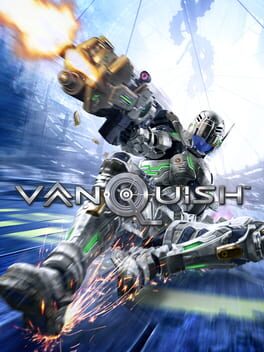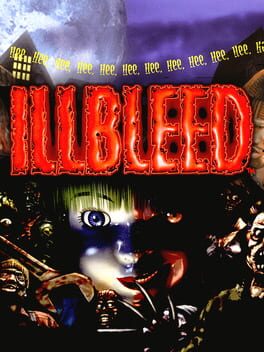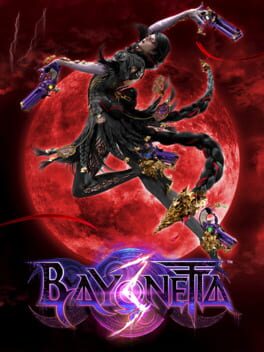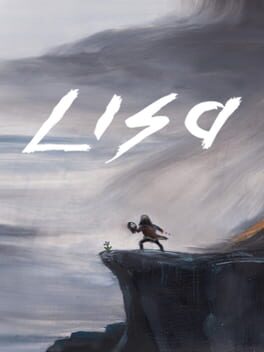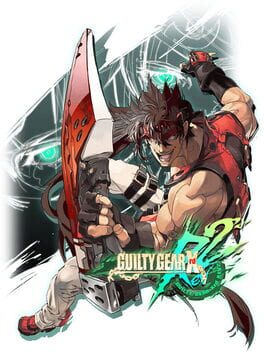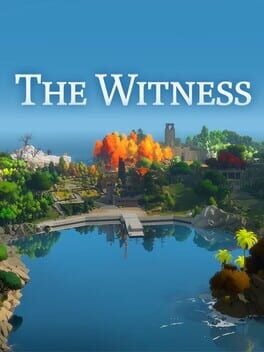bateater
23 Reviews liked by bateater
Sonic Adventure
1998
Killbug
2023
Bionic Commando
2009
Lies of P
2023
overbrightened the visuals, and has tacky gradient lighting in spots. the original ps2 version has a great muted-yet-colorful look going on with all of its soft mid-tones. i also hate the weird revisionist-history mascotified redesign of the prince that has bled over to merch. its a shame that this is the only rerelease of this game--and i'm surprised no one has done a "original game restoration mod" in the same way that sonic adventure 1 and 2 have
Horizon Chase Turbo
2018
Monkeet
2023
Was a great and fun Foddy-like game, was a short and sweet game jam game, was real satisfying to master the controls.
The only part I think could use some work was the trap door section as it was a bit unresponsive when allowing you to get your 2nd jump but otherwise you can find a way to get past it.
The only part I think could use some work was the trap door section as it was a bit unresponsive when allowing you to get your 2nd jump but otherwise you can find a way to get past it.
Guilty Gear: Strive
2021
Vanquish
2010
If you're under the impression of this game being an action title masquerading as a cover shooter, then let me break it to you, it's not an action game by any stretch of the imagination, it is simply a repetitive and extremely flawed movement focused cover shooter with a mind-numbingly boring gameplay loop. Even as a shooter this game has very little entertainment value as it is loaded with meat sponge boss fights that require 0 strategy to take down and can be extremely tedious in the hardest difficulty while also offering little to no actual enemy variety in the mob department. And on top of all that the game is plagued by god awful pacing where you sometimes watch cutscenes that are straight up longer than the actual gameplay segments and the narrative being non-existent with nothing but corny dialogues does not help its cause. Visuals and Music are quite samey and forgettable too which is fitting since the entire game is just that "forgettable"
Killer7
2005
It's amazing how much you can get done with just a little bit of unconventionality, isn't it? Killer7 dares to take the mere act of walking from one place to another and render it unrecognizable. What's usually a two-stick process is now mapped almost entirely to the "A" button, denying the player control over both the camera and the path your character takes. This game's tutorial mission scrambled my brain- not because walking is at all complicated, but because it's such a radically different approach from everything else I've played that I couldn't comprehend it at first. Hardly ever being responsible for the direction that your Smith goes in makes it that much more difficult to create a mental map of the area, even when frequently consulting the actual in-game map. Trying to decipher spacial layouts in Killer7 is as tricky as trying to decipher the game's overarching plot, and I often found myself stopping to take aim when there weren't any enemies around just for a more orthodox camera perspective. And, clearly, this was a deliberate trap. In the collective mind of the Smith syndicate, the world only makes sense when viewed through the scope of a rifle, a detail that's communicated entirely through gameplay and embellished through audiovisuals. The simple geometry and basic color gradients of every environment seem to mock you, claiming that they're not as complicated as you think they are, and the haunting laugh of every Heaven's Smile adds that extra bit of disorientation. Given how effective this one facet of the game is, then, it's such a shame that the rest of it is just so conventional. I shoot enemies in their glowing weak spots. I solve puzzles that I'm given the answers to. I'm never tasked with managing the mutual vitality of the Killer7, nor do I even choose my Smith based on the situation that I find myself in. Conforming to the standard structure of ending most levels with a boss battle is the most poorly considered of these decisions, as the lack of any mobility whatsoever means they're all simultaneously painful yet far too easy. The one exception is Andrei Ulmeyda, who represents an exciting chase through an arena that was actually built to take advantage of how moving around works. Ulmeyda Intercity, in general, seems to have been lifted from a much more cleverly designed game, mainly due to how it reevaluates how horror should operate in the context of Killer7. It's pretty unconventional for a game's scariest level to be its least confined, isn't it? Unfortunately, this game isn't all that weird, despite how desperately it wants to convince you otherwise. Samantha, for instance, abstractly transitions between various erotic fantasies and/or stages of adolescence whenever you see her, and only allows you to save your game when she's an adult-slash-French-maid. Leaving such a vital part of the game to an unreliable character is a stroke of genius, especially when you consider how much of a relief finally reaching a safe zone in a stressful game can end up being, but it's all rendered pointless by the fact that the map tells you where you can and can't save, allowing you to ignore Samantha's whims entirely while planning your path. But, I suspect, fans of this game will consider any non-thematic analysis of Killer7 to be equally pointless. I won't pretend to be smart enough to fully get what Suda is ultimately grasping at, though I will say that fate and control are far and away some of the least interesting themes for video games to cover, even back in 2005. Nor will I pretend to care all that much- thematically rich or not, the game's still boring, and in my eyes, anything that demands a deeper look is obligated to contain more replay value, not less. I've almost certainly only been made dumber by the amount of times I've heard Leon S. Kennedy's corny one-liners, but I'm not sure if I'll ever return to this (according to Suda acolytes) incredibly intellectually rewarding work. For better or worse, I no longer get that DS feeling...
Illbleed
2001
Bayonetta 3
2022
another garbage multiverse story that adds absolutely nothing to the series
looks meh, runs meh, gameplay is meh, straight up bad when you take into account that abusing the giant boring demons is the ''optimal'' way of playing the game, soundtrack is forgettable, some maps are ok tho but end up being boring anyways, game lacks sound effects, most of the time it felt like i wasn't hitting anything but the air and had to genuinely stop pressing buttons to see if i was hitting something, viola is annoying as fuck, the new VA for Bayo isn't that bad but it's still not even close to the original (it's a shame the og VA is an idiot), you have almost no reason to use the shop at ALL, there's a STUPID amount of gimmick fights that are not interesting in the slightest (giant boring demons, side-scrollers, jeanne sections, etc)
oh, the ending was absolutely garbage except for ONE part of the final boss and that's all i'm gonna say about it
it's a shame because i really like bayo 1 and 2 and was really excited for this, but it turned out like this.
looks meh, runs meh, gameplay is meh, straight up bad when you take into account that abusing the giant boring demons is the ''optimal'' way of playing the game, soundtrack is forgettable, some maps are ok tho but end up being boring anyways, game lacks sound effects, most of the time it felt like i wasn't hitting anything but the air and had to genuinely stop pressing buttons to see if i was hitting something, viola is annoying as fuck, the new VA for Bayo isn't that bad but it's still not even close to the original (it's a shame the og VA is an idiot), you have almost no reason to use the shop at ALL, there's a STUPID amount of gimmick fights that are not interesting in the slightest (giant boring demons, side-scrollers, jeanne sections, etc)
oh, the ending was absolutely garbage except for ONE part of the final boss and that's all i'm gonna say about it
it's a shame because i really like bayo 1 and 2 and was really excited for this, but it turned out like this.
Lisa
2014
Lisa is a lot of things. It's disgusting, hilarious, beautiful, interesting, fun, and above all else, important. As a game, there are enough unique mechanics to set itself apart from most other indie RPGs, but as a story, it is truly stomach sinking.
One of Lisa's most impactful aspects is its integration between story and gameplay interaction. Without spoiling too much, your choices have very real consequences on the story and gameplay, despite the sequence of events remaining the same. One choice may lead you down a different cutscene, skewing your perspective of the story. Another choice may shift the way you approach battles entirely. This kind of mechanic is best suited for a first time playthrough, however. Of course, on my second playthrough, I have no reason to choose any gameplay altering decisions, as I'm most likely not as invested in the story the second time around. This is partly circumvented through Lisa's branching story and expansive cast of characters, offering an entirely new experience for the first 4 or so playthroughs.
Lisa's worst sin is its difficulty. I breezed through this game. A lot of challenge in Lisa is imposed on the player BY the player. Again, that works for a first playthrough, but I'm less inclined to create disadvantages for myself simply because I know more about how the game operates when I replay.
It's hard to talk about Lisa without mentioning its story and I'd rather avoid talking about it at all to avoid expectations, but like I said, it's a lot of things. It's as funny as it is repulsive. It's as hopeful as it is tragic. It's as ""quirky"" as it is genuine. As a whole, it's a game worth playing and immersing yourself in. Nu-indie RPGs take notes.
One of Lisa's most impactful aspects is its integration between story and gameplay interaction. Without spoiling too much, your choices have very real consequences on the story and gameplay, despite the sequence of events remaining the same. One choice may lead you down a different cutscene, skewing your perspective of the story. Another choice may shift the way you approach battles entirely. This kind of mechanic is best suited for a first time playthrough, however. Of course, on my second playthrough, I have no reason to choose any gameplay altering decisions, as I'm most likely not as invested in the story the second time around. This is partly circumvented through Lisa's branching story and expansive cast of characters, offering an entirely new experience for the first 4 or so playthroughs.
Lisa's worst sin is its difficulty. I breezed through this game. A lot of challenge in Lisa is imposed on the player BY the player. Again, that works for a first playthrough, but I'm less inclined to create disadvantages for myself simply because I know more about how the game operates when I replay.
It's hard to talk about Lisa without mentioning its story and I'd rather avoid talking about it at all to avoid expectations, but like I said, it's a lot of things. It's as funny as it is repulsive. It's as hopeful as it is tragic. It's as ""quirky"" as it is genuine. As a whole, it's a game worth playing and immersing yourself in. Nu-indie RPGs take notes.
I have a strained relationship with fighting games. They're a genre of game everyone around me has had the time to understand and enjoy thoroughly, so it always made sense to pick some up for myself. The motivation behind playing every fighting game I've ever owned was always playing with friends. UNIB, DBFZ, P4AU, SkullGirls, SF4 and 5, Tekken 7, and Guilty Gear Strive were all purchased on recommendation from friends; something that we could all play together. This isn't to say I don't enjoy some of those games, but this strain I feel towards fighters has always been consistently building. Eventually, it reached its peak. Suddenly, fighters went from games we could resort to for game nights to endurance tests. How long could someone stand getting the pulp beaten out of them one-sidedly? How long could someone ride the high of winning over and over? How long could we keep lying to ourselves that this might be "it." The game we play for more than just 5 hours. The fighting game we dedicate to.
That "it" game never came. The skill gap between individuals grew wider, arguments on the functionality of certain games grew tired... and so did I. I didn't want to buy the newest fighter again just to pretend I've wrapped my head around the tutorial, hop in a match with friends, get swept, get sour, practice combo trials to my limit, get swept... rinse repeat. "Hitting the lab" sounded good on paper, but it never seemed like a good division of my time. Why waste all of my time "practicing" something I'm not understanding the fundamentals of when I could just be playing a game better suited for me? Perhaps it sounds like my inner conflict was unfair and I was making up my mind before trying, but all things considered I was beginning understand that I just didn't like fighting games. I grew resentful to the idea of playing one whenever it was brought up. I often blamed the genre itself.
It felt like I had effectively wasted all that time. Totaling the playtime of all of the fighting games I own on Steam, I have a sum of 218.9 hours in the genre. Adding mental estimations of times from fighters I've played on other consoles, the number increases to somewhere around 700 hours. ...Subtracting games that don't "count" like Smash, Lethal League, Rivals, (games I enjoy more than your traditional fighter...) we're down to 132.3 hours played dedicated entirely to fighters.
Guilty Gear Xrd: Rev 2 currently makes up 26 of those 132.3 hours. 19.6% of all of my time spent playing fighting games has been from Rev 2.
I've enjoyed every minute.
Rev 2 was initially a casualty of the lifelong attempt of trying to get myself "into" fighting games; it came and went without a sound. I can't even recall how my first experience with it went. This last October, Rev 2's rollback beta ran from the 17th to the 31st. My friends and I thought: why not? We don't need to spend money on a new game, we haven't played this in a while, rollback should make it better... let's try it out! My only other experience with Guilty Gear after my initial taste of Rev 2 and before my playtime during the rollback beta was with Strive; a game I would say I dislike. Hopes weren't high, but after my first play session, something felt weird. I wanted to play again the next day, and the next day, and the next day. I wanted to try the arcade mode, play people online, try out new characters! This was particularly unusual for me. I never want to play a fighter on my own volition, especially without my friends. So, what changed?
For a while I couldn't understand it, partly because I was having so much fun playing. I could sit here and tell you "THIS CHARACTER MADE THE GENRE CLICK FOR ME!" or "REV 2'S MATCHMAKING AND ROLLBACK MAKES THE GAME GOOD!" but I'd be lying to you. Yes, Rev 2 has characters I enjoy playing as, but nothing that shifted any opinions I had on other games. It wasn't one character that saved the day for me or something. Yes, the rollback and matchmaking system is inviting and offered ease to any mitigating circumstances, but I've continued to play even with the reinstated delay-based netcode. It had nothing to do with that. After thinking on it critically while playing the game, I think my love for Rev 2 and attributes I will grade future fighting game endeavors on stems from a few things.
Aesthetic, Clarity, and Time.
Aesthetic goes without saying. I like how the game looks, I like how it sounds; I'm a big fan of it as a whole. I try not to talk about or take into consideration artistic preferences too much in these reviews since it's such a subjective thing, but Rev 2 just executes everything it sets out to do in such a charming and unique way. The cultivation of technique through how the game's character models interact with the camera and shaders ppaved the way for games like DBFZ, DNFDuel, and even Strive to really iterate. In my opinion, however, Xrd is the best looking out of these games as it fits nicely into my own personal mold for what I specifically want. It's just a joy for me personally.
While I can understand any disagreements on the quality of this game's aesthetic, clarity in a fighting game is non-negotiable. You need to understand what is going on at all times. The effects animations need to be as clear and as effectively telegraphed as possible. If not, you run the risk of style overcoming substance; something I feel a lot of fighters find themselves ensnared in. That isn't to say those games don't achieve their own priorities effectively, but Rev 2, as gimmicky of a game as it can be, leaves nothing to be questioned. I've rarely asked, "what was that?", and when I have, I've never been upset with the answer. I've never scratched my head at what was going on, I've never misunderstood the intentions of a move, effect, or input. Everything is as perfectly communicated as it can be within the burst of combat. It almost seems effortless, but I can't imagine the amount of directive work it took to make sure the sheer amount of potential miscommunications didn't exist in the final product. I can't stress this enough. It is extremely impressive.
Time is probably one of the most important things to me. I can get caught up in my own thoughts relative to time for too much of itself. I ask myself dumb shit like "How much time do I have left?" "Am I spending my time wisely?" and probably dumbest of all: "Is playing video games a waste of time?" The answer to all those questions are probably as ridiculous as the thoughts themselves, but speaking about time relative to fighting games is an interesting discussion to me. A common piece of advice I acknowledged earlier when people express distaste for their fighting game experience is to "hit the lab." My immediate rebuttal to that was to complain about the amount of time that's being implied it takes to simply enjoy the game. Reflecting on that is a little ridiculous since during my playtime with Rev 2, I trained in the lab more than once. It's not an unfounded recommendation, but suddenly my strife with the lab dissipated for one reason another. I no longer found it weird to have to put "extra time" away from the main experience to enjoy myself. I chalk this up to a lot of time passing between my initial bout with Rev 2 and my current one. Between that long period, I played a ton of fighting games. So much, in fact, that I grew fatigued enough to detest the genre as a whole.
Rev 2, for whatever reason, stood the test of time, though.
This is all to say that Rev 2, despite containing everything I once claimed to be actively working against a fun play experience, is a game I will gladly boot up whenever I find the time. I want to conclude this rather lengthy review by saying that if you've ever felt similar about fighters, I implore you to keep seeking them out. It's a weird genre with a lot of infuriating culture, mechanical fundamentals, and strange priorities, but I assure you there's one out there for you. Yes, you specifically. The guy who doesn't like fighting games.
Whether or not it's Rev 2 is not for me to say, but rather for you to see for yourself.
That "it" game never came. The skill gap between individuals grew wider, arguments on the functionality of certain games grew tired... and so did I. I didn't want to buy the newest fighter again just to pretend I've wrapped my head around the tutorial, hop in a match with friends, get swept, get sour, practice combo trials to my limit, get swept... rinse repeat. "Hitting the lab" sounded good on paper, but it never seemed like a good division of my time. Why waste all of my time "practicing" something I'm not understanding the fundamentals of when I could just be playing a game better suited for me? Perhaps it sounds like my inner conflict was unfair and I was making up my mind before trying, but all things considered I was beginning understand that I just didn't like fighting games. I grew resentful to the idea of playing one whenever it was brought up. I often blamed the genre itself.
It felt like I had effectively wasted all that time. Totaling the playtime of all of the fighting games I own on Steam, I have a sum of 218.9 hours in the genre. Adding mental estimations of times from fighters I've played on other consoles, the number increases to somewhere around 700 hours. ...Subtracting games that don't "count" like Smash, Lethal League, Rivals, (games I enjoy more than your traditional fighter...) we're down to 132.3 hours played dedicated entirely to fighters.
Guilty Gear Xrd: Rev 2 currently makes up 26 of those 132.3 hours. 19.6% of all of my time spent playing fighting games has been from Rev 2.
I've enjoyed every minute.
Rev 2 was initially a casualty of the lifelong attempt of trying to get myself "into" fighting games; it came and went without a sound. I can't even recall how my first experience with it went. This last October, Rev 2's rollback beta ran from the 17th to the 31st. My friends and I thought: why not? We don't need to spend money on a new game, we haven't played this in a while, rollback should make it better... let's try it out! My only other experience with Guilty Gear after my initial taste of Rev 2 and before my playtime during the rollback beta was with Strive; a game I would say I dislike. Hopes weren't high, but after my first play session, something felt weird. I wanted to play again the next day, and the next day, and the next day. I wanted to try the arcade mode, play people online, try out new characters! This was particularly unusual for me. I never want to play a fighter on my own volition, especially without my friends. So, what changed?
For a while I couldn't understand it, partly because I was having so much fun playing. I could sit here and tell you "THIS CHARACTER MADE THE GENRE CLICK FOR ME!" or "REV 2'S MATCHMAKING AND ROLLBACK MAKES THE GAME GOOD!" but I'd be lying to you. Yes, Rev 2 has characters I enjoy playing as, but nothing that shifted any opinions I had on other games. It wasn't one character that saved the day for me or something. Yes, the rollback and matchmaking system is inviting and offered ease to any mitigating circumstances, but I've continued to play even with the reinstated delay-based netcode. It had nothing to do with that. After thinking on it critically while playing the game, I think my love for Rev 2 and attributes I will grade future fighting game endeavors on stems from a few things.
Aesthetic, Clarity, and Time.
Aesthetic goes without saying. I like how the game looks, I like how it sounds; I'm a big fan of it as a whole. I try not to talk about or take into consideration artistic preferences too much in these reviews since it's such a subjective thing, but Rev 2 just executes everything it sets out to do in such a charming and unique way. The cultivation of technique through how the game's character models interact with the camera and shaders ppaved the way for games like DBFZ, DNFDuel, and even Strive to really iterate. In my opinion, however, Xrd is the best looking out of these games as it fits nicely into my own personal mold for what I specifically want. It's just a joy for me personally.
While I can understand any disagreements on the quality of this game's aesthetic, clarity in a fighting game is non-negotiable. You need to understand what is going on at all times. The effects animations need to be as clear and as effectively telegraphed as possible. If not, you run the risk of style overcoming substance; something I feel a lot of fighters find themselves ensnared in. That isn't to say those games don't achieve their own priorities effectively, but Rev 2, as gimmicky of a game as it can be, leaves nothing to be questioned. I've rarely asked, "what was that?", and when I have, I've never been upset with the answer. I've never scratched my head at what was going on, I've never misunderstood the intentions of a move, effect, or input. Everything is as perfectly communicated as it can be within the burst of combat. It almost seems effortless, but I can't imagine the amount of directive work it took to make sure the sheer amount of potential miscommunications didn't exist in the final product. I can't stress this enough. It is extremely impressive.
Time is probably one of the most important things to me. I can get caught up in my own thoughts relative to time for too much of itself. I ask myself dumb shit like "How much time do I have left?" "Am I spending my time wisely?" and probably dumbest of all: "Is playing video games a waste of time?" The answer to all those questions are probably as ridiculous as the thoughts themselves, but speaking about time relative to fighting games is an interesting discussion to me. A common piece of advice I acknowledged earlier when people express distaste for their fighting game experience is to "hit the lab." My immediate rebuttal to that was to complain about the amount of time that's being implied it takes to simply enjoy the game. Reflecting on that is a little ridiculous since during my playtime with Rev 2, I trained in the lab more than once. It's not an unfounded recommendation, but suddenly my strife with the lab dissipated for one reason another. I no longer found it weird to have to put "extra time" away from the main experience to enjoy myself. I chalk this up to a lot of time passing between my initial bout with Rev 2 and my current one. Between that long period, I played a ton of fighting games. So much, in fact, that I grew fatigued enough to detest the genre as a whole.
Rev 2, for whatever reason, stood the test of time, though.
This is all to say that Rev 2, despite containing everything I once claimed to be actively working against a fun play experience, is a game I will gladly boot up whenever I find the time. I want to conclude this rather lengthy review by saying that if you've ever felt similar about fighters, I implore you to keep seeking them out. It's a weird genre with a lot of infuriating culture, mechanical fundamentals, and strange priorities, but I assure you there's one out there for you. Yes, you specifically. The guy who doesn't like fighting games.
Whether or not it's Rev 2 is not for me to say, but rather for you to see for yourself.
The Witness
2016
Most of the people who tell you they want games to be seen as art are lying.
I don't just mean in the sense that "gamers want games to be art but complain when people critique their problematic elements". That is true, but moreover, another side mostly composed of quirky indie fans often gets ignored. Most of the people who talk about "games as art" are really talking about "art as games". People have ideas about what makes great art: stories, characters, music, atmosphere, visuals, animation, setting; this is what a game needs to be great art, it needs to have the same elements that make literature great, or film. Most of these people will say that in order to be art, games have to "more than just games". Some will even say that games need to stop being games altogether.
The Witness may be the single greatest game as a piece of art yet, and it may never get the credit it deserves simply because it is a video game, and it isn't trying to be something else. The way it so totally and coherently expresses itself through its communication and psychology, through its singular mechanic of movement. Navigation in macrocosm and microcosm. It's a game you play on a virtual island, a game you play on a screen within a screen, a game that you play in your head.
I don't just mean in the sense that "gamers want games to be art but complain when people critique their problematic elements". That is true, but moreover, another side mostly composed of quirky indie fans often gets ignored. Most of the people who talk about "games as art" are really talking about "art as games". People have ideas about what makes great art: stories, characters, music, atmosphere, visuals, animation, setting; this is what a game needs to be great art, it needs to have the same elements that make literature great, or film. Most of these people will say that in order to be art, games have to "more than just games". Some will even say that games need to stop being games altogether.
The Witness may be the single greatest game as a piece of art yet, and it may never get the credit it deserves simply because it is a video game, and it isn't trying to be something else. The way it so totally and coherently expresses itself through its communication and psychology, through its singular mechanic of movement. Navigation in macrocosm and microcosm. It's a game you play on a virtual island, a game you play on a screen within a screen, a game that you play in your head.
